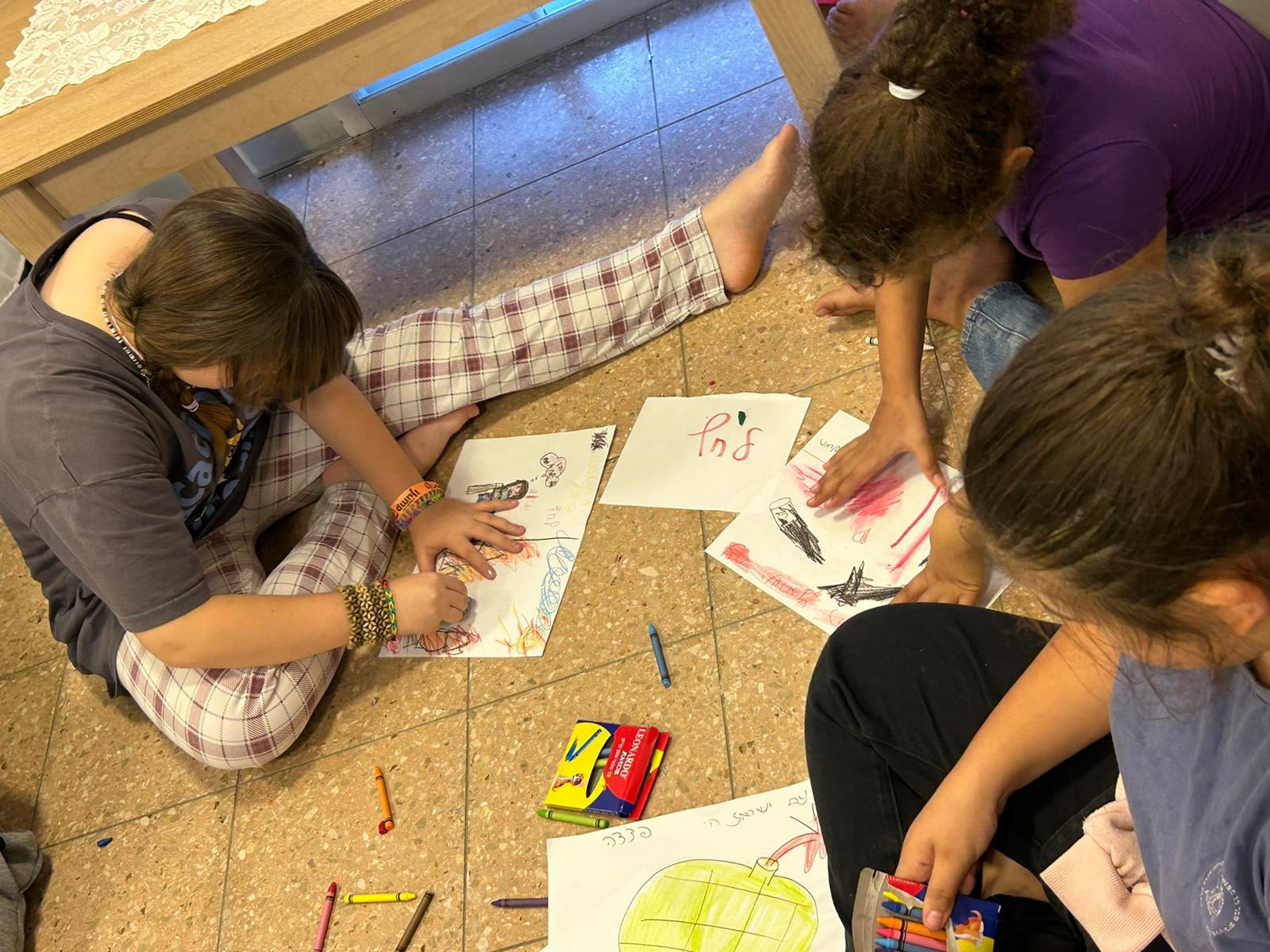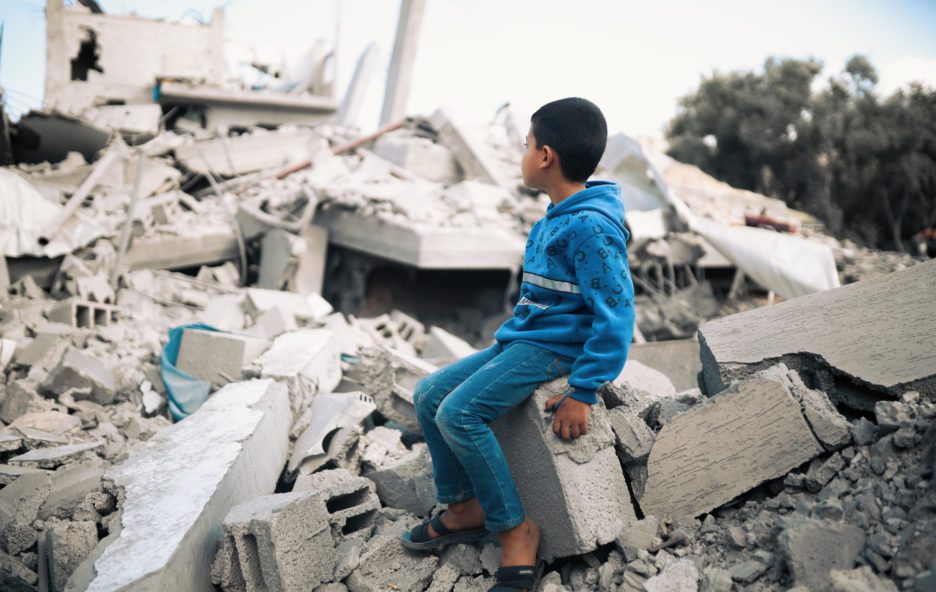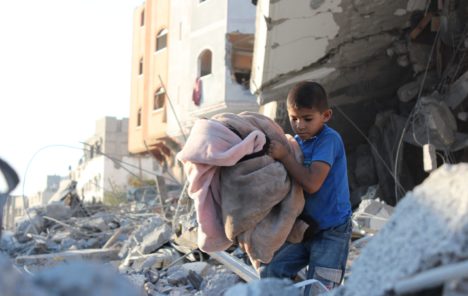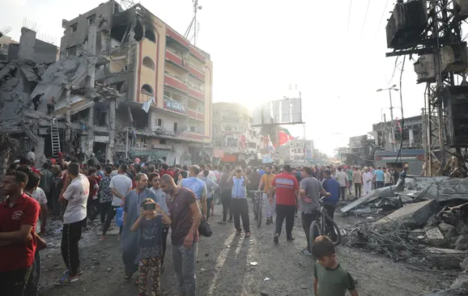For the children of Gaza, the West Bank and Israel, the losses and trauma from this war are taking a heavy toll, not only on their physical health and security, but also on their mental health and well-being. On top of the daily safety threats they face, thousands of children in Gaza have been left without parents or family members to care for them. Over two million people in the Gaza Strip are without protection, and an estimated 85% of the population are displaced, with no safe spaces for them to shelter in.
Their sense of security has been shattered. Children without parental care, many already coming from troubled backgrounds, face being retraumatised. As well as immediate protection, psychological care for these children is crucial to avert long-term trauma.
Providing psychological care
In Gaza, the children and caregivers in SOS Children’s Village Rafah, in the southern Gaza Strip, live with the constant threat of bombs falling nearby. In the Gaza Strip, SOS Children’s Villages is scaling up psychological support, not only to caregivers at the Children’s Village, but also to community members.
“The ongoing situation has created immense challenges for our families and children,” says the National Director of SOS Children’s Villages Palestine. “The impact on children in particular, is profound. Daily struggles for basic needs, exposure to violence, and the constant threat to their sense of security shape their daily lives – and this is having a long-lasting impact on their mental health.”
In Israel, the echoes of the 7 October violence are leaving lasting impacts. Shira*, who lives at the SOS Children’s Village Neradim in Arad, Israel, lost her older sister during the attack on a music festival in Reim. Two other siblings lost an older brother who was killed outside his home while trying to defend his kibbutz.
“Many of the young people know quite a few friends who were kidnapped and who were killed,” says Mor Rabi Mizrahi, who is in charge of youth programmes at SOS Children’s Villages Israel. “Their mental state is not well; everyone is in great fear and sadness.”
“The impact on children in particular, is profound. Daily struggles for basic needs, exposure to violence, and the constant threat to their sense of security shape their daily lives – and this is having a long-lasting impact on their mental health.”
Protecting children’s emotional wellbeing
Exposure to violent conflict can significantly impact a child’s development, with effects that endure into adulthood. Children who already live without the love and support of parents are particularly vulnerable, as they are without the caring bonds needed to help them develop resilience and overcome these traumatic experiences.
For children living in war and conflict zones who are experiencing trauma, nurturing and protective relationships are more important than ever. Parents and caregivers need mental health support too to cope with this crisis situation.
In Israel, the caregivers are trained to identify signs of distress. Our National Director of SOS Children’s Villages Israel explains:
“One of our main concerns is how the horrible images and stories that are being spread, in particular via social media, affect the mental and psychological well-being of children.”
They are encouraged to have conversations where children have the space to express their emotions, some using writing and drawing. Children also receive psychological treatment through individual and group therapy by professional psychologists to prevent the long-term effects of post-traumatic stress.
“Children in alternative care have been through so much trauma in their lives already – so much upheaval and instability,” says Hanna, a therapeutic care coordinator at the SOS Children’s Village Neradim, Israel. “Their sense of security was already stunned, and every day we do such a hard job to restore it and create safe soil for them to grow in. And now, these events shook their world hard.”
“We encourage talk of feelings every day, each one with what he feels, what he faces,” Hanna adds. “A place to vent, a place to support each other. We channel our energies into positive actions to maintain a life routine through creativity and love for others, both inside and outside the village.”
In Gaza, a psychologist working at the children’s village in Rafah, says that since the outbreak of the war, many children have lost contact with biological family members.
“Many family members of the children were killed, especially first-degree relatives, such as siblings or fathers,” says the psychologist. “Children experienced a psychological shock, sadness, and emotional pain as a result of this loss.”
One-on-one sessions help the children deal with this painful period and reduce the risk of having a psychological shock in the future.
“Children often ask us during the sessions questions like ‘Why was my brother killed? What was his fault?’ We deal with these questions with utmost professionalism to protect them from any setbacks,” the psychologist says.
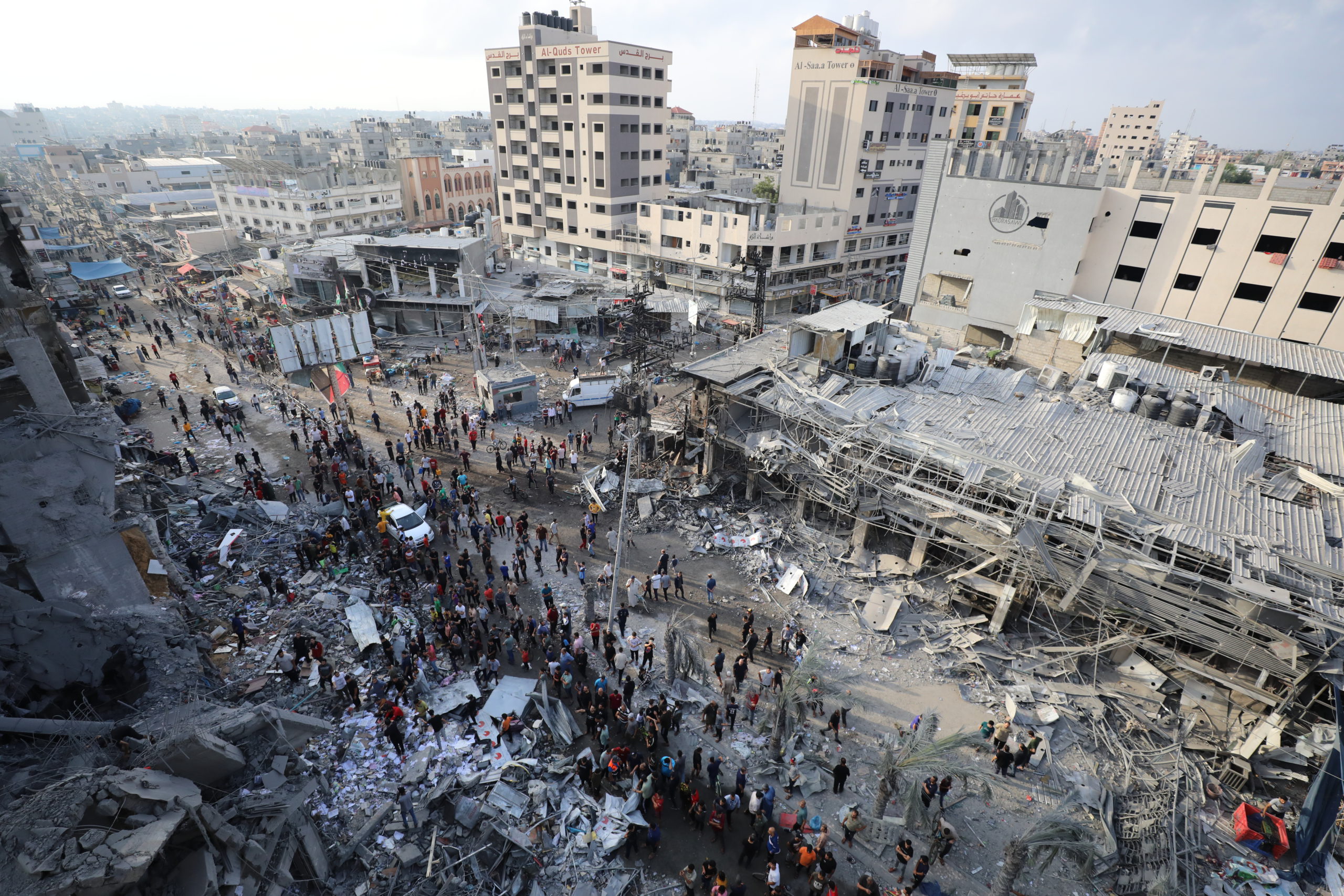
Accommodating unaccompanied children
SOS Children’s Villages Palestine has begun working with a partner agency to care for unaccompanied and separated children due to the ongoing war. While it is impossible to know exactly how many there are, it is estimated that thousands of children in Gaza have now lost one or both parents.” comments our National Director of SOS Children’s Villages Palestine.
“We are committed to doing our best to accommodate some of the unaccompanied and separated children. The temporary shelter at SOS Children’s Village Rafah will operate from the moment the children are admitted for a period of up to a year.
“To support 55 newly admitted children, we will hire seven staff members from the local community in Rafah, in addition to a social worker, a psychologist, and a nurse.
“We will bring in two experienced retired SOS Mothers to provide care for the newly admitted children along with the necessary pedagogical staff needed.”
Our National Director of SOS Children’s Villages Israel hopes that the work they do in Gaza, the West Bank and Israel, will contribute to a more peaceful future: “I hope that we are able to teach the children the values of tolerance, inclusion and non-violence – in order to build a better world.”
*Names changed or removed to protect privacy
